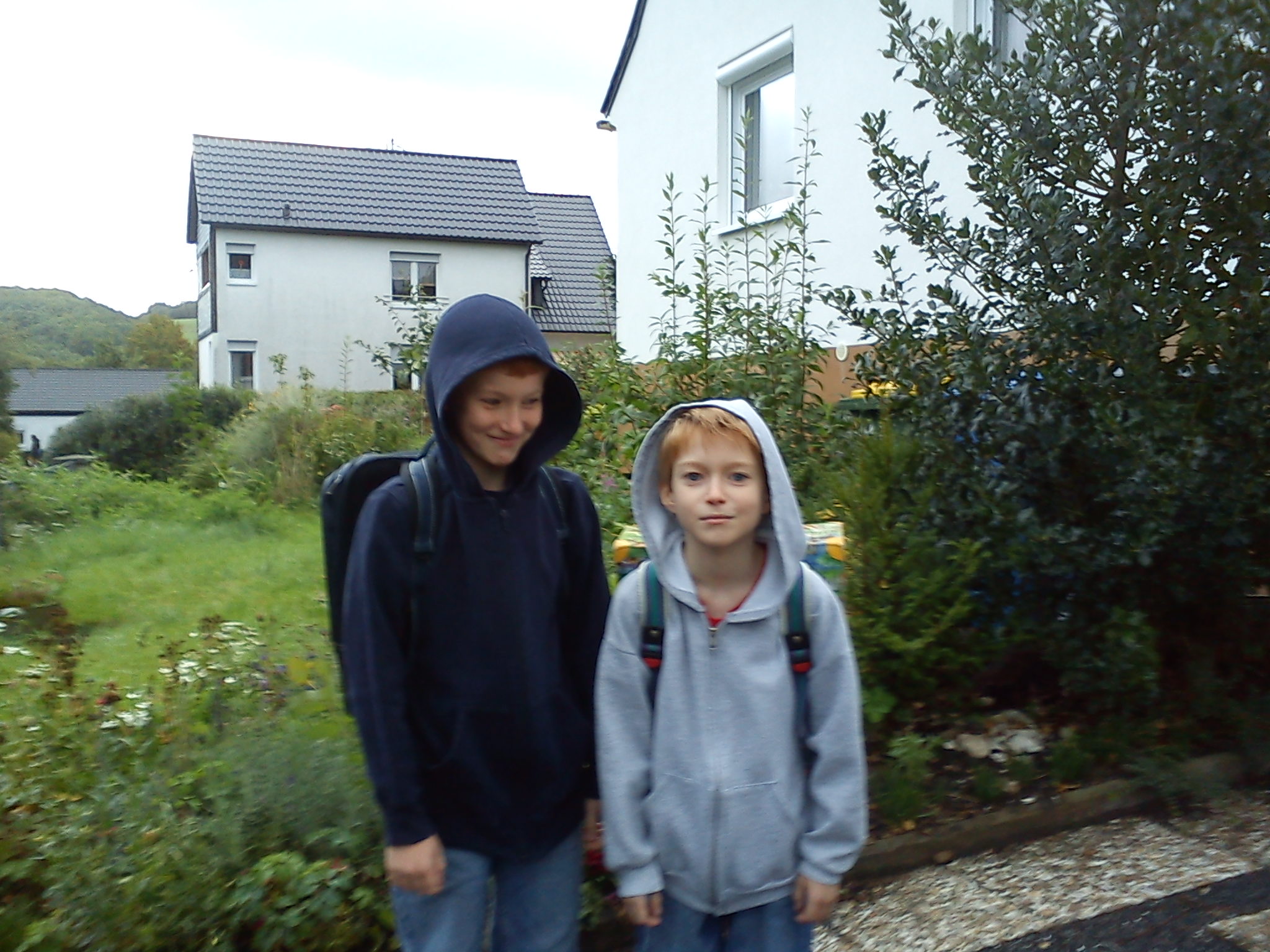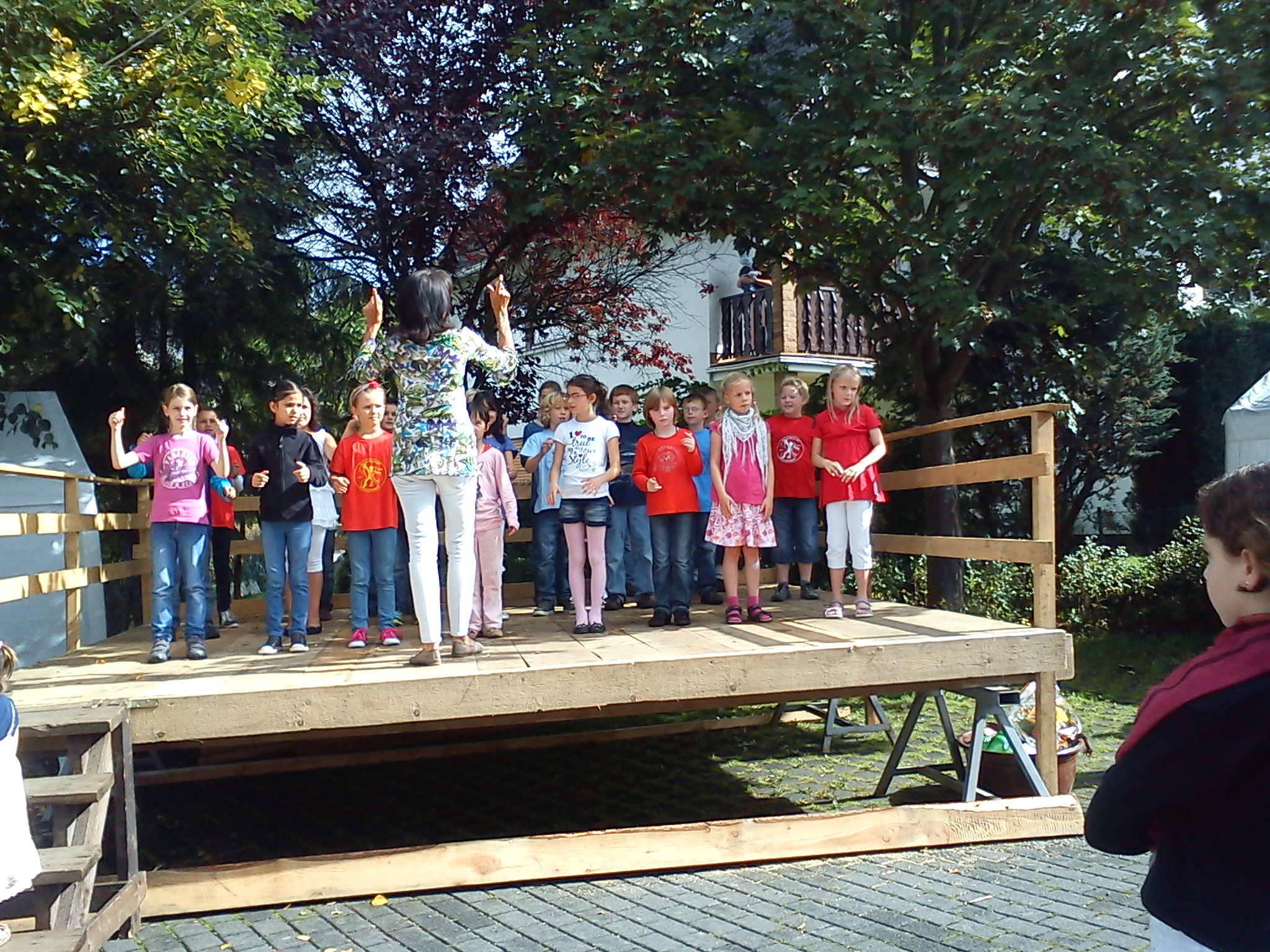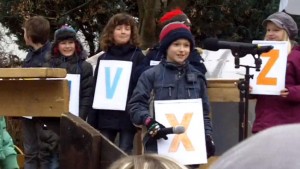It has taken me more time than I’d hoped to finish writing about the boys’ schooling. Back at The Citadel, the proper response to a query for the cause would be, “Sir, no excuse, sir!”
Missionary kids are a different breed. Far be it from me, being merely the parent of a pair, to attempt a full description of these creatures. One thing I have observed, though, is that MKs sometimes have an unusual assortment of educational experiences. Our boys will be no exception.
Until September of last year, Katherine taught the boys at home, taking advantage of the educational freedom that the states of Texas and Missouri offered. In Texas, these two also had periodic “classes” with other homeschoolers that enriched their learning and provided them with a fantastic social network. And, for the record, some of Katherine’s highest qualities shine when she is lovingly and sacrificially teaching our boys.

In Germany, however, we need to send our children to a school. After reviewing the options for school and for my work, we decided to put them into the primary school in Niederdresselndorf, the village adjacent to the one where the Wycliffe office is. The Grundschule Dresselndorf is a mere 500 meters from where we live – a short walk. The school has a strong English program for both teachers and students, which we felt would reduce the possibilities for miscommunication and confusion.
It took long enough for us to get here that we had to make another significant decision. Normally, Jonathan would have begun the fifth grade this school year. In fifth grade, German schoolchildren move from primary school to one of several different types of secondary school. That decision is made during the fourth grade with the consultation of each student’s teachers. The principal here felt that, while J was certainly bright enough to handle the academic content, his German was not yet good enough to enable him to understand all of the instruction or to interact well with his teachers and the other students. So we chose for him to begin here in the fourth grade and to have time to acquire the language. C, on the other hand, started the year with his age-mates in the third grade.

Overall, our boys have done very well in adjusting to the new school. The language ability came quickly, as it usually does in young children. We just have to be careful, sometimes, when they introduce words and phrases that they learned on the playground! (Their teachers have been very kind in their corrections.) Homework was something else they had to get used to – back when they were homeschooled, everything was homework!
The best thing about school – at least according to C – is the huge number of friends that they’ve made. We’re still getting used to them disappearing into the village after their schoolwork is done to go play. It was no surprise, though, when we heard from J that C plays nothing but soccer during the breaks. That’s a sure way to make friends here! He now plays on the local team with several of his classmates. J, who is more of an acrobat, tends to dominate the monkey bars. He goes to the trampoline classes at the recreation center with one of his friends from school.
Both boys received their first-ever report cards last week, and we were pleased with them. What a joy it is to not be burdened with concerns for their education and for their fitting in to a new environment!

As I write this, Katherine is out registering Jonathan at the secondary school that he would like to attend next year. It’s the type of school called Gymnasium – just try to think of it as an academic fitness center, and you’ll do fine. The Dietrich Bonhoeffer Gymnasium is located in Neunkirchen, about a 25-minute drive from Niederdresselndorf. The public bus system makes special school runs throughout the day, and that’s how he would get to whatever school he goes to. We are impressed with the program there, so it makes us happy to send him to the school where his other classmates attending Gymnasium are going.
Well, I’ve boiled this down as much as I can. Those of you who are particularly curious should write to Katherine or give us a call on Skype. But, nosy or not, you can thank God with us for providing a good situation for the boys’ little minds!